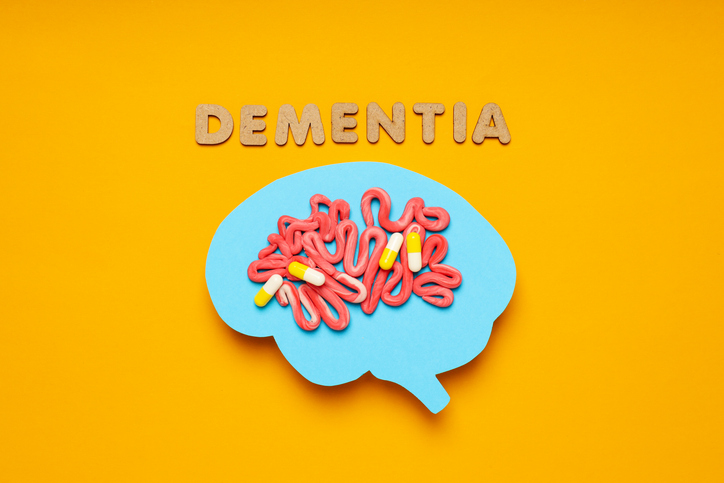
Older adults with mild cognitive impairment (MCI) who consume more than 14 alcoholic drinks per week have a higher risk of dementia and cognitive decline, according to a recent study published in JAMA Network Open.
In this prospective cohort study, researchers evaluated 3,021 participants (median age, 78, 46% female) enrolled in the Ginkgo Evaluation of Memory Study (GEMS) – a randomized, double-blind, placebo-controlled clinical trial that was conducted between 2000 and 2008 and studied the link between Ginkgo biloba and dementia prevention among older adults. The researchers recruited participants from four academic medical centers in the US and excluded any with a known history of excessive alcohol use.
At baseline, the study subjects were asked to report their frequency of beer, wine, and liquor consumption in days per week as well as their habitual use of 12-oz cans or bottles of beer, 6-oz glasses of wine, and shots of liquor. The researchers categorized participants based on alcohol consumption by: none, less than 1 drink per week, 1 to 7 drinks per week, 7 to 14 drinks per week, and more than 14 drinks per week. They utilized multivariable proportional hazard regression and linear mixed models to appraise the risk of dementia and the rate of change over time.
Drinking Associated with Lower Cognitive Scores
According to the study results, during an average follow-up of 6 years, 512 cases of dementia occurred. The researchers observed that among participants who reported 7 to 14 drinks per week compared with less than 1 drink per week, the hazard ratios for dementia were 0.63 (95% CI, 0.38 to 1.06) among 2,548 participants without MCI and 0.93 (95% CI, 0.47 to 1.84) among 473 participants with MCI. Moreover, among participants with MCI, the hazard ratio for dementia was 1.72 (95% CI, 0.87 to 3.40) for more than 14 drinks per week compared with less than 1 drink per week.
They also observed that the association of alcohol intake with dementia differed for participants with and without baseline MCI (P for interaction = .03). Among participants without MCI, daily low-quantity drinking was associated with lower dementia risk than infrequent higher-quantity drinking (hazard ratio, 0.45; 95% CI, 0.23-0.89; P = .02). Overall, their findings were consistent when adjusted by sex, age, and APOE E4 genotype.
“Compared with drinking less than 1 drink per week, complete abstention (in participants without MCI) and the consumption of more than 14 drinks per week (in participants with MCI) were associated with lower Modified Mini-Mental State Examination scores (mean difference at follow-up compared with baseline, −0.46 point [95% CI, −0.87 to −0.04 point] and −3.51 points [95% CI, −5.75 to −1.27 points], respectively),” the study authors wrote.
Alcohol Consumption and Risk of Dementia and Cognitive Decline Among Older Adults https://t.co/aIfwcawTWu
— Ronald K. Phillips (@Ariella09) September 28, 2019
They added in their conclusion that: “These results suggest that while caring for older adults, physicians should carefully assess the full dimensions of drinking behavior and cognition when providing guidance to patients about alcohol consumption.”
Is alcohol consumption associated with risk of dementia and cognitive decline in older adults? @SCCM https://t.co/2Ufj07IQCm
— Lauren R. Sorce, PhD, RN, CPNP-AC/PC, FAAN, FCCM (@SCCMPresident) September 29, 2019
https://twitter.com/KenSPope/status/1178613769053888512







 © 2025 Mashup Media, LLC, a Formedics Property. All Rights Reserved.
© 2025 Mashup Media, LLC, a Formedics Property. All Rights Reserved.